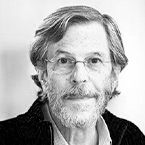
Martin A. “Mac” Cheever, MD, an internationally recognized pioneer in immunotherapy, died September 23, 2021, at the age of 77.
Cheever was born February 4, 1944. He earned his medical degree from the University of Michigan, then conducted his internship and residency at the University of Washington, where he would remain a professor throughout his career. He conducted a research fellowship at the Fred Hutchinson Cancer Research Center, then joined the Fred Hutch faculty in 1976.
Shortly thereafter, Cheever and colleagues published papers showing that mice with leukemia could be cured by a transfer of white blood cells from another mouse that had developed an immune response to a grafted tumor. This principle was a forerunner of modern therapies such as CAR T-cell therapy. Over the course of his career, Cheever built upon that research, working to develop cellular therapies for patients with blood cancers and solid tumors.
In 1994, he cofounded Corixa Corp., a maker of therapeutic cancer vaccines that developed Bexxar, a radioimmunotherapy drug that secured approval from the U.S. Food and Drug Administration for the treatment of lymphoma. The company was acquired by GlaxoSmithKline, and Cheever returned to Fred Hutch.
In 2007, Cheever established the Cancer Immunotherapy Trials Network, serving until recently as the network’s director and principal investigator. The network brings together leaders from 40 leading universities and cancer centers to coordinate and analyze clinical trials.
Cheever joined the AACR in 1979. He was an active member, attending many AACR Annual Meetings and speaking at the meeting in 2010, 2011, and 2013. He was also a frequent contributor to AACR journals, including Cancer Research, Clinical Cancer Research, and Cancer Epidemiology, Biomarkers and Prevention. He was a member of the Cancer Immunology Working Group from 2008 to 2021 and a member of the CRI Lloyd J. Old Award in Cancer Immunology Committee from 2014 to 2015.
Among many career awards, Cheever was recognized with the first-ever Distinguished Service Award from the International Society for Biologic Therapy of Cancer in 2019. Along with his Fred Hutch colleagues, he had previously received a Lifetime Achievement Award for team science from the same organization.
Leave your remembrance of Dr. Cheever below.
Mac and I met as undergraduates at Michigan. Moved into an apartment my junior year and Mac lived next door. What a wonderful year. We shared many adventures. Following graduation we lost touch for a number of years reconnecting in the late 80’s Since then we have have shared photos and messages. When I did not hear from Mac this Christmas I had a feeling something was wrong. Tried to text but it wouldn’t go through. Looked on the internet and learned of his passing. He called us “lifelong friends”. I miss him in my life but have so many memories. My condolences to his family and friends
Mac was special. Smart, insightful, and a driven clinician scientist who was warm, friendly, and fun to be around. We worked together on the NCI’s Translational Research Working Group, and then piloting TRWG concepts in the immunotherapy arena. He never waivered in his belief in cancer immunotherapy and had a clear vision of all it could be, leading him eventually to the CITN. We have benefited so much from his efforts. We’ll miss you Mac!
He was a champion of cancer immunotherapy from the dawn of the field, a believer in academic/industry/FDA collaboration and an eternal optimist. But mostly, he was a believer and a champion of people. His humanness will be sorely missed.
Mac Cheever and I crossed paths a few times at SITC and NIH meetings. I was always impressed with the depth and breadth of his knowledge and leadership in cancer immunology. His establishment of the CITN was visionary. He will be missed.
I met Mac about thirteen years ago and regularly attended the meetings of the Cancer Immunotherapy Trial Network (CITN) that he organized in conjunction with the SITC annual meeting. He was an incredible force for the field, a visionary with a wonderful ability to bring out the best in all of the people who worked or collaborated with him. He pursued big ideas with the patience and persistence required to translate the science into therapies for patients. His article "Twelve immunotherapy drugs that could cure cancers" published in Immunol Rev. in 2008 was truly prescient and continues to be an inspiration. Mac never took himself too seriously yet always knew the right answer. I cannot imagine an immunotherapy meeting without him.
Mac was a kind, generous, relaxed, insightful, visionary, humorous, dedicated, perceptive, colleague, friend, and mentor for me and so many, many more. His pioneering work with Alex Fefer and Phil Greenberg, got so many of us interested in immunotherapy because they made it look like someday it might really work! Mac dedicated his career towards gently yet persistently pushing toward that goal, and in many ways, bringing so many others along with him!
May his memory be a blessing!
I never met Dr Cheever but when I joined the study section ET-2 in 1992 I was taught the Cheever scoring system when went a below:
Cheever 1–the investigator can do the work and the study section thinks it should be done
Cheever 2–the investigator cannot do the work but the study section thinks it should be done
Cheever 3–the investigator can do the work but the study section sees no value to it
Cheever 4–the investigator cannot do the work and the study section sees no value to it
Mac was always ready for a chat about immunotherapy or science in general. He was a steadfast supporter of immunotherapy for decades and maintained our interest in the field well before current breakthrough therapies.
He will be sorely missed